Heart and science in balance
The first thing you notice about Taylah Brunell is the balance she carries. “I feel like I have two sides,” she says. “I have the mental health and disability focus side that’s very heart led, and then I have my science, biomed brain that’s very logical. It’s the ballad of me and my brain all day, every day.” That mix is exactly what she brings to coordination at Meliora.
Early start in support work
Taylah has been with us for about three months, though her story in support work started early. “I started when I was a baby at 17,” she laughs. Her first placement was in youth work, supporting rural kids in a home away from home setting. “It was taking rural children and kind of teaching them how to use a knife and fork, how to sit at a dinner table, and giving them access to healthcare.” At 18 she moved into mental health and found the work she could not step away from. “It’s such a shame that we still live in a society where mental health is stigmatized. Back in 2018 it was still a taboo subject. People were marginalized because of it. There wasn’t a voice.” She grins at the memory of her younger self. “Little miss 18-year-old wanted to be the one to take on the world and make that change.”
That urge to make change has stayed practical. “I’ve definitely made enough noise and enough ruckus to elicit some change,” she says, then brings it back to the everyday. “Supporting one individual, one family, even the smallest change can be huge. Getting someone to shower at least once a week can be huge. It gives them pieces of their dignity back again.” Meeting people where they are and working from there is the through line in how she coordinates.
Why Meliora felt right
Coming back to the NDIS space after a two year break, Taylah was clear about what she needed. “I wasn’t going to do it unless it was for the right organisation and with the right people,” she says. Her recruitment with Meliora felt different right from the start. “We met on a Sunday evening over Zoom, and the next formal meeting was on a public holiday. I was like, all right, these guys are a little different. You were open, receptive, transparent. It wasn’t just a tick and flick. You wanted the right person. Someone who has the same values and integrity as you. And someone who has boundaries.”
A team approach that shares the load
The day to day has confirmed that first impression. “There are crisis points throughout the week with clients and their plans, but I’ve never once felt that impending doom I used to get,” Taylah says. “Meliora is such a team-based approach. We’ll just work it out.” She smiles when she talks about the culture. “Very supportive, very open minded. It’s work, but it doesn’t feel like work at the same time. It feels like you’re coming and hanging out with a bunch of friends, and then you’re helping people on top of that.”
Unlearning old habits
Not everything has been easy. After experiences in more rigid workplaces, she is still unwinding some habits. “Releasing that trauma from previous organisations is a thing,” she says frankly. “You’re not being micromanaged. You don’t have to clock in and clock out. Do your job. We trust you. We have faith in you. I’m still unlearning it at three months, but it’s getting there.” That trust gives her the headspace to focus on what matters for participants.
What participants notice
Ask what participants notice most and she answers without hesitation. “We actually respond. We reply. We get back to you,” she says. “We’re not a support coordinator who just sits in the background for months on end and does nothing. If you reach out, we will follow up and take action.” Behind that promise sits structure. “We do monthly check ins. Everyone gets reminded to check in with participants to make sure everything’s going well and the money situation isn’t getting out of hand. Everyone has eyes across things at least once a month, but it’s definitely more than that.”
How Taylah works
Taylah’s coordination style blends that steady contact with honest conversations about goals, barriers and evidence. The heart side listens first. The science side keeps things moving with clear steps, deadlines and follow through. “It gives me the best of both worlds,” she says. “I can be emotive and supportive, then switch to the black and white thinking that gets tasks done.”
A team with personality
There is also room for personality. “I would say that we’re quirky,” Taylah laughs. “We’re all quirky. Everyone that works here. It’s not for everyone, but it works.” For many participants, that mix of warmth and straight talk feels like a relief.
Thinking about support coordination
If you are thinking about support coordination, Taylah’s message is simple. “Reach out,” she says. “Tell us where you’re at and what you want life to look like. We’ll listen, and we’ll get to work.”

